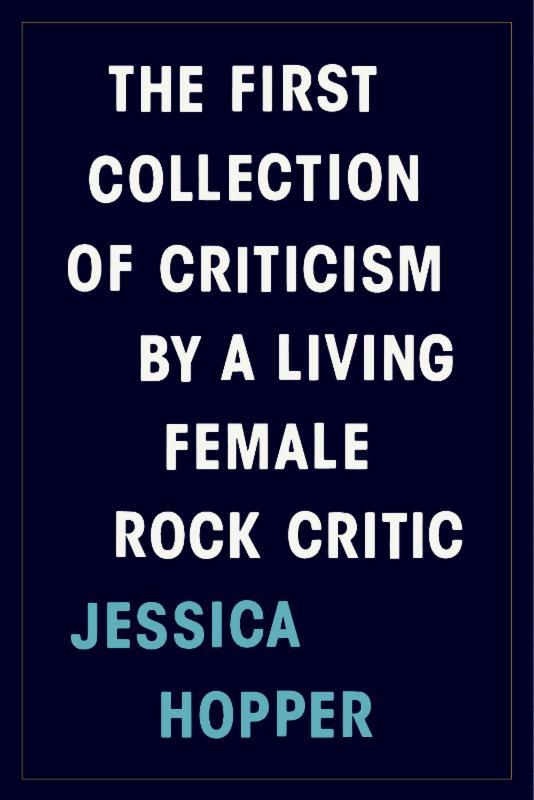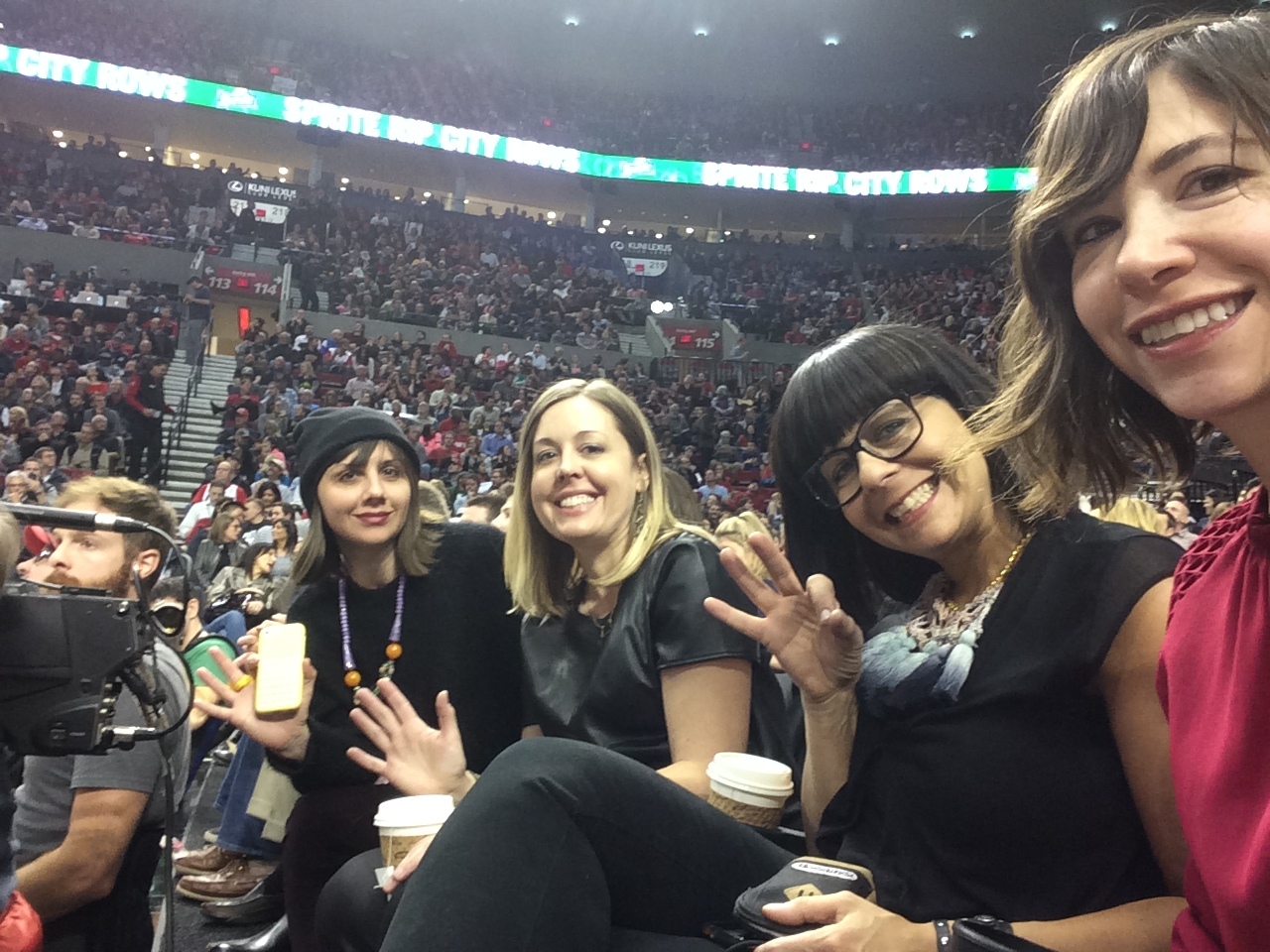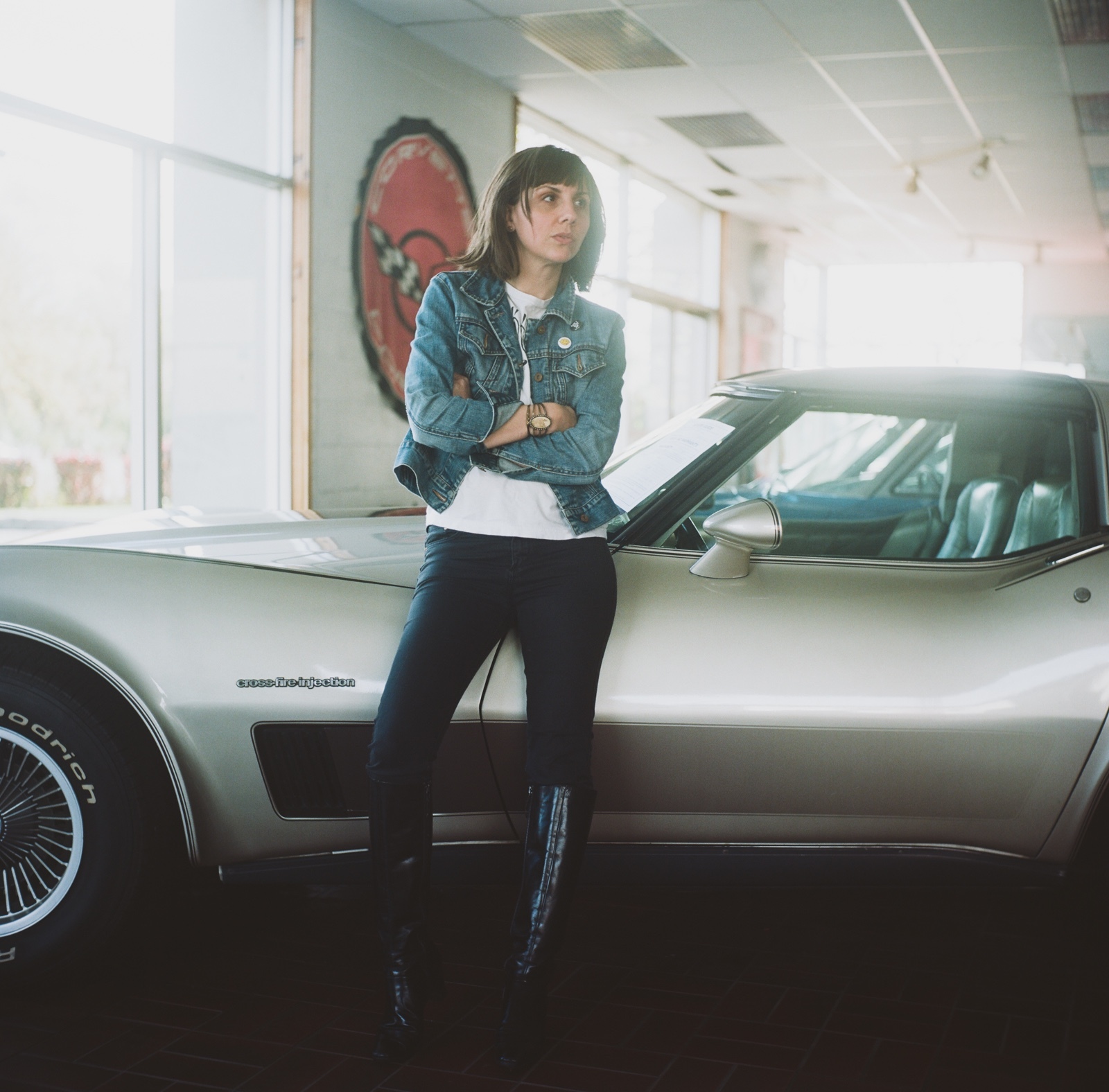Jessica Hopper has an intense relationship with music. She’s been writing about it— across genres from hardcore punk to radio pop, covering huge festivals and solo artists alike, on topics from emergent technologies to the financial specifics of indie rock, for everything from self-published fanzines to Punk Planet (R.I.P) to the Pitchfork Review, where she is editor-in-chief— since age sixteen. Which was not, like, yesterday.
All this has led to the publication of her second book, gloriously titled The First Collection Of Criticism By A Living Female Rock Critic. It was supposed to be released May 12th, but Jessica decided to ship all the pre-orders before that: “Those are the people that made it possible— so everybody got their books seven weeks early.”
This is just another example of the generosity of Jessica Hopper, who believes that once someone sneaks through the door of the ultra-patriarchal academy, they should prop that door open wide, so as to let others through. This direct activism is at the forefront of her work as an author and editor. “I have a feminist agenda, you know. I think this book makes that clear. And there’s nothing wrong with that. It’s not like it’s an act. What is it that they call people on the Supreme Court? An ‘activist judge.’ Well, I’m fully that. I made a career out of that.”
Despite her impact, she still finds it “really nuts” to see a photo sent by a friend of a stranger reading her book on the train. “Somebody that isn’t someone I know the first and last name of and where they live is reading this book. It exists in the world, you know? Even though it’s my second book, it’s still pretty novel to me.” (No pun intended? “No, all puns intended at all times.”)

She credits her sense of wonder and discovery of her life’s work to her early education. “It’s funny, I always kind of credit it to being a Montessori kid, but I did everything I was doing by learning and failing— by doing it wrong. It’s such a Montessori thing to be like, ‘This is what I’m interested in, so I’m going to pursue this thing.'”
Yet Hopper had no specific critical education when she started writing about music at sixteen. One of her most well-known pieces, reprinted in The First Collection, is her 2003 Punk Planet essay ‘Emo: Where the Girls Aren’t.’ “It took me eighteen months to write that because I had to figure it the fuck out. It wasn’t like I had a critical framework. I didn’t go to college. I never read a book of music criticism before I’d written it.”
That essay became a touchstone of revolutionary feminist politics in emo music, a largely apolitical scene. It also made Hopper into a role model for some— and a pariah to others. “At the time, it was like I had descended from the moon with this theory. I was so far out. What happened was— and this is early everybody-has-email days, still pretty new to that world— every day for a year, I got at least three letters about it. This was mail, coming in the mail with a stamp. People cared that much. And then I got an email about it probably every day for three years. And it was an absolute even gender split. I’d get, ‘This is my life, thank you, I cried when I read this, I want to be in a band,’ all that stuff from women, and then men are like, ‘You are stupid, you don’t know what this is about, and this isn’t sexist.'”
This attitude on behalf of men in music hasn’t changed much since the essay’s publication, largely because of what Hopper refers to as “the awful animosity towards women the internet has ramped up.” Her early essays remain valuable educational resources for anyone wanting to look further into the relationship between music and sexism. One of the most vital things about Hopper’s writing is its ability to transcend time. Essays written in the early- and mid-2000s are as relevant to the dialogue about women in music as anything being written today. Hopper chalks this up to the fact that she’s “been trying to have the same conversations for twenty years.”

‘Emo: Where The Girls Aren’t’ ends with Hopper wondering whether the misogyny implicit in the scene will affect women’s desire and ability to start bands of their own. The ’emo revival’ of the last few years has been promising, with artists as diverse as Mitski, Joanna Gruesome, and Tigers Jaw (not to mention the recent Rainer Maria reunion) proving that misogyny didn’t come close to squelching women’s desire to make sensitive, emotionally forthright music.
She is, of course, wholly supportive. “If emo and emo revival is where these girls are framed, and they want to take a space at that table, I mean, fuckin’ go get it. We all kind of get to where we need to be eventually. I see changes in the scene these girls are interested in, and there might be space for them there, and if there isn’t space for them there, that they feel licensed to take it whether anyone gives them permission or not.”
This sense of rebellious hope is intrinsic to her belief about the importance of music. She writes exultantly about songs that “offer a connection to the disconnected [and] make our secrets bearable.” And she continues to engage with artists who deliver that sense of hope to their listeners, as witnessed in ‘The Invisible Woman,’ her recent internet-breaking interview with Bjork, where they discuss how to remain hopeful as non-millennial women in the music industry.
“Because I am old— I’m 38— I can say that ten years ago, no one was having these conversations,” says Jessica. “No one saw that this had to be part of the way that we see and perceive music and talk about it— that we have to take in anyone’s consideration other than the old white man’s canon. There is a radical shift going on, and I am very excited for music in ten years. How we’ll approach criticism and how we’ll write about music and how we think about music will be so different in a couple of years when women of color are more a part of the question and the answer and the discussion and the idea of what is beautiful and what is awful about music. Like, that is what I want to know. I want to be in the future for that. I want to be around to help be part of that. That’s my deal.”
So it only feels right to ask the expert what her advice is for young women looking to follow her path into the world of music criticism.
“Being a fangirl is all the qualification you need. And don’t wait for anyone to give you permission. They won’t. And you should do it anyways.”
Credits
Text Meredith Graves
